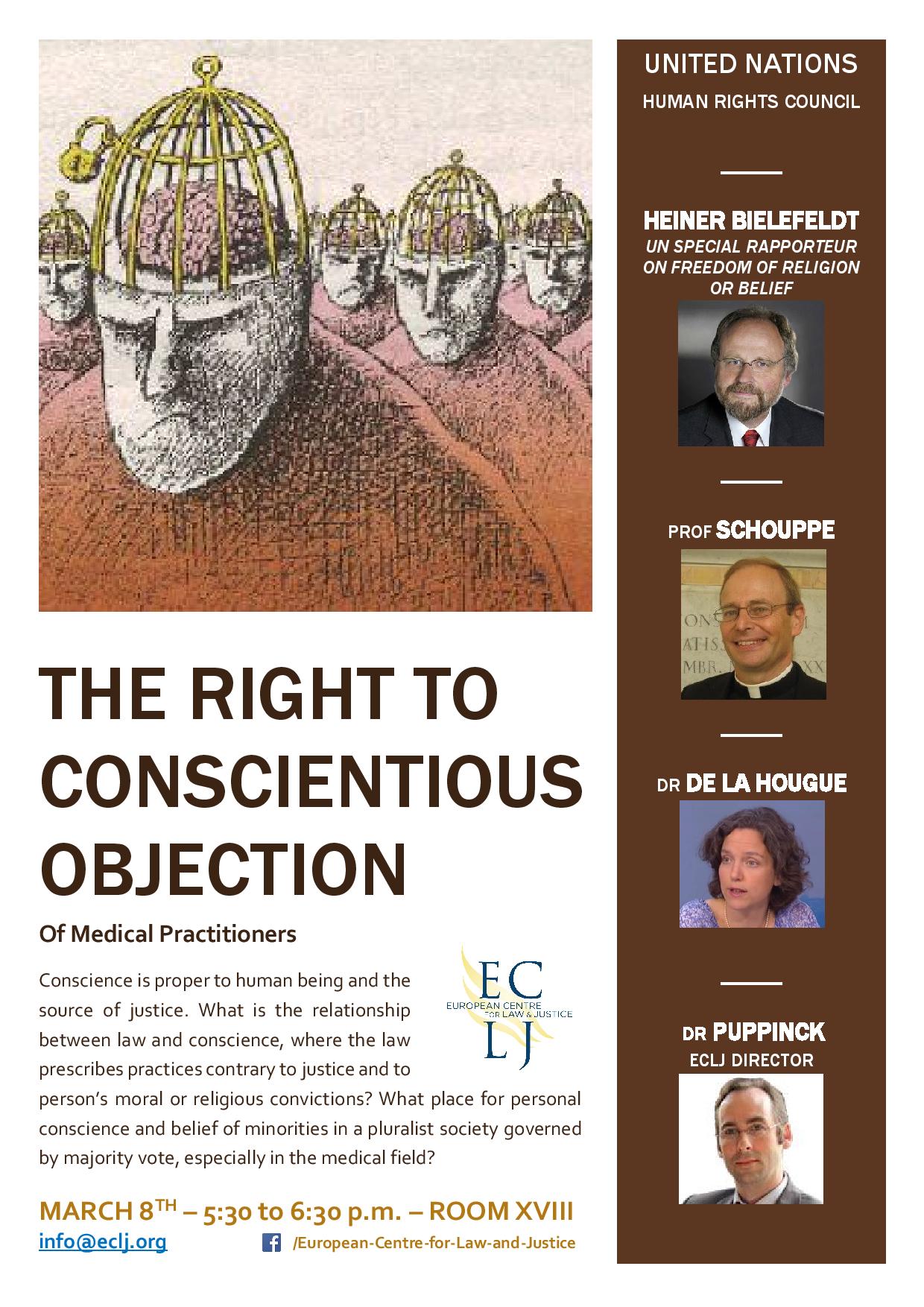
Side event: The right to conscitious objection of medical practitioners
Side event on conscitious objection
Side event – HRC, Geneva, session 31.
Date: March 8th 2016.
Organised by the European Centre for Law and Justice.

Concept note:
The main purpose of the side event is to clarify the notion of conscientious objection and to explain the right to conscientious objection in the context of medical professions.
It will concentrate on the situations where a human life is a stake, although the issue of conscientious objection is larger. While the right to conscientious objection to military service is increasingly recognized, the well-established right to conscientious objection to abortion and euthanasia for medical practitioners is often criticized because it would impede individual liberty.
Conscience is proper to human being and the source of justice. Article 1 of the Universal Declaration of Human Rights defines human beings as “endowed with reason and conscience". The universality of conscience is the source of universality of justice and human rights.
What is the relationship between law and conscience, where the law prescribes practices contrary to person’s moral or religious convictions? What place for personal conscience and belief of minorities in a pluralist society governed by majority vote?
More and more people and groups invoke their conscience or religion to refuse to perform acts required by their employer or by law, for example by refusing to perform military service, to celebrate unions between persons of the same sex, to collaborate in an abortion or euthanasia, to vaccinate their children, or to let their children attend mandatory ethics, religion or sex education courses, etc. It is up to public authorities, and finally to the judge to rule on the merits of each objection and it is to be feared that, overwhelmed with various requests, they come to reject all, in the name of the equality before the positive law, while reducing the guarantee of freedom of conscience and religion. A clarification of the concept of conscientious objection is therefore required, not to extend its scope to the point of making it indefensible, but rather to better define it so that it can be guaranteed in a just measure.
Conscience, freedom of conscience and conscientious objection
By Prof. Dr. Heiner Bielefeldt, United Nations Special Rapporteur on Freedom of Religion or Belief.
What is the right to conscientious objection?
By Dr Gregor Puppinck, Director of the ECLJ.
Personal conscientious objection in the context of medical professions
By Dr. Claire de La Hougue, Lawyer, fellow of the ECLJ.
The case of the institutional right to “conscientious” objection and the right to “autonomy”
By Prof. Dr. Jean Pierre Schouppe, Professor at the Pontifical University of the Holy Cross, Rome.
Read here the full text of the intervention for each of these speakers:












